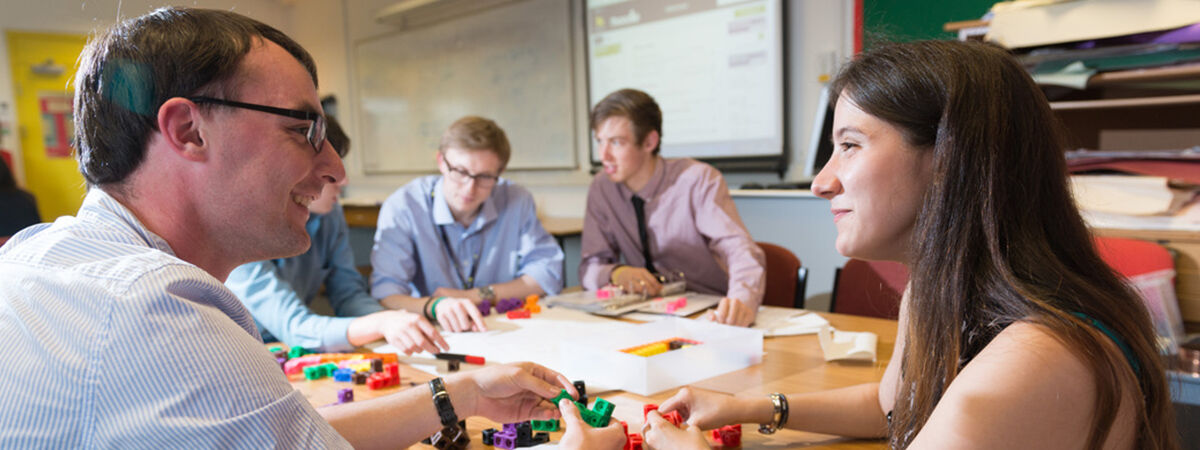Research environment
All three of our research groups reflect the core research interests and activities of research-active members of CSPACE. Each research group is led by a senior academic and supported by early career researchers.

This is complemented by associated Graduate Research Teaching Assistants (GRTAs), as well as full-time and part-time doctoral students on both the PhD and EdD programmes. A monthly programme of research seminars, a monthly programme of methodology seminars and an annual research conference weld the groups and bring cohesion. There are also a number of symposia, conferences and seminars in specialist and discrete areas to enable and facilitate niche areas within the groups.
PhD initiatives
Since 2014, we have seen a 300 percent growth in the size of our postgraduate research (PGR) community. This has been achieved through a number of initiatives, as well as dedicated support and facilities.
Funding
Full-time PGR students are faculty funded with fee reimbursement and bursary payments and a significant number of part-time students are funded by the Faculty fee waiver scheme.
Since 2013, we have pioneered a new Graduate Research Teaching Assistant (GRTA) scheme to recruit and nurture a new generation of academic staff. GRTAs are appointed on a four-year contract that blends assistant lecturing with PhD study.
GRTAs are fully supported to complete a PG Cert in Teaching and Learning and to gain Advance HE Associate Fellow Status. Since 2014, HELS has invested in the scheme and 18 Education GRTAs have been recruited. A third have, on completion, progressed onto academic posts in the Faculty.
The introduction of the EdD programme in 2012 has been fundamental to supporting a 300 percent increase in doctoral enrolments in Education. CSPACE supports a community of 123 PGRs, 11 full-time and 112 part-time, of which 87 are following the EdD programme (compared to 18 in 2013/14).
Opportunities
PGRs have opportunities for involvement in bid writing, ongoing research projects, research dissemination, conference organisation and attendance at national and international conferences. We also hold regular writing retreats each year, and PGRs are invited to attend and work alongside research staff to hone and polish their work.
PGRs are also provided with multiple opportunities to gain experience of collaborating with senior staff on projects and publications in their research group.
This combination of high-quality supervision, complemented by a rich programme of seminars and mentoring by senior staff, enables PGRs to excel beyond the expectations of their award. Many have secured bursary awards and accolades due to this support.
Staff also regularly attend workshops and training sessions to ensure they have the insight and knowledge needed to care for PGRs' mental health and wellbeing.
Facilities and development
There is a dedicated space for PGRs, the recently refurbished DRC Hub, that provides dedicated desks, computer, and photocopier and kitchen access.
HELS invested £70,000 between 2018 and 2019 in equipment to support fieldwork, data collection and analysis for use by staff and PGR researchers. This includes audio and video recording equipment and a bank of 35 long-loan laptops.
On joining the CSPACE research community, all PGRs are expected to undertake the Post-graduate Certificate in Research Practice which ensures that regardless of previous research experience, they are equipped with a sound understanding epistemological and ontological concepts as well as methodological research skills. The Faculty takes ethical issues and GDPR seriously and these dimensions of our research culture are embedded in all aspects of PGR skills development including their initial proposal, the PG Cert, the annual progress reviews (see below) and the ongoing monitoring and assessment of progress.
We also oversee an annual programme of training opportunities that complements the formal structures of the PGR life-cycle and is responsive to needs identified through annual monitoring and the annual PRES survey, and ensures a secure grounding in research governance and integrity.
Following this, skill development and monitoring are closely supported and strategically managed. The Faculty has adopted the Vitae research development framework to support the maturation of its research community and this is now embedded within the Annual Review of Progress (APR). The APR is conducted in June and offers a three stage self-reflection process for the PGR involving student reflection, supervisory comments and an independent third party critical friend who offers support and guidance to the student and supervisory team.
Research focuses
Our research focuses are embodied by our three research groups. Find out more by below:
- Birmingham Music Education Research Group (B-MERG)
- Cultures in Education Research Group (CiERG)
- Practitioner Education Research Group (PERG)

Apply for a PhD
Find out more >>

Learn more about PhD life and how to apply
Find out more >>

Current studentships
Find out more >>